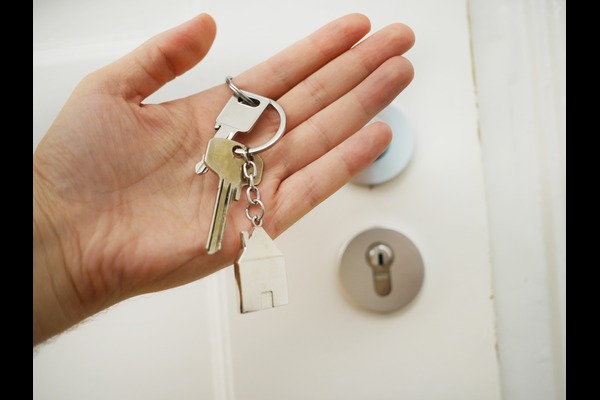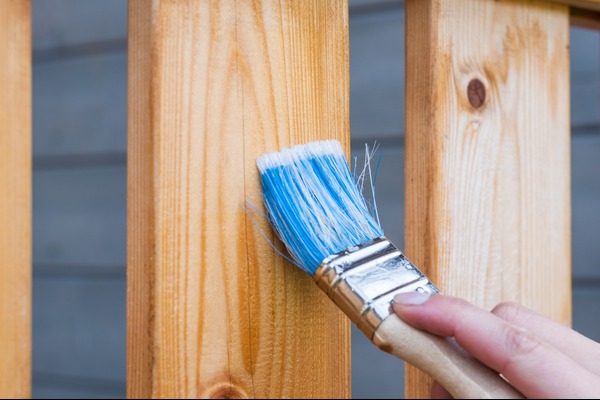News
The Pros and Cons of Bridging a Loan
There are many situations where it is important to be able to secure financing in a timely fashion. In the business world, you will need to be able to act quickly in order to be able to make certain investments. You may also require funds just to cover certain operational costs while waiting for more funds to come in. If you are in need of money fast, then you might want to consider bridging a loan.
For those who aren’t in the know, a bridging loan refers to securing short-term financing. These are quick loans that allow you to receive funds quickly so that you can get by. You will then be able to take the time to secure a more permanent financing solution while paying back the short-term loan within the agreed-upon parameters. There are many benefits to bridging a loan in this fashion, but there are also negative aspects that you should consider.
Why do people use bridge loans?
One of the most common reasons that people decide to look for short-term financing solutions is that they want to make an investment. Sometimes, opportunities present themselves, and you need to be able to strike right away. Real estate investment opportunities are a good example of this. Having the ability to get the money that you need quickly is essential if you want to be able to purchase a hot property.
The pros of bridging a loan
When you need to finance something quickly, it is important that you are able to get access to the funds in a timely fashion. Short-term loans can work to get you what you need as fast as possible. There are generally two types of short-term loans that you can sign up for. There are closed loans with a fixed repayment date and open loans that have greater flexibility.
Those who need to make a quick investment or who are trying to buy a property will be able to easily access closed loans. You set up a date for repayment, and everything works out very smoothly. Open loans are more common when you have yet to figure out the details of when you can close on a property. This is a little bit more ambiguous, as you won’t know when you will be capable of repaying the loan yet, but it is good to have flexible options.
The cons of bridging a loan
Bridging a loan can be more expensive than getting a traditional loan. You will be paying for the convenience of getting the funds that you need so quickly. Bridging loans are a short-term financing option that is only to be used for specific purposes. It isn’t something that you will want to use regularly, as you’ll be paying significant amounts of interest on this loan type.
Also, if something goes wrong with your investment, you could be stuck with a costly loan and no way to pay it back. This can be a bit of a high-risk loan situation if you don’t know what you are doing. It is important to only use bridging loans to get by when you know that repayment won’t ruin you. Take all the possible outcomes into consideration before deciding to move forward.
Is this worth doing?
Bridging a loan is worth doing if you need to be able to secure financing quickly. It comes down to what options are available to you. If you have an open credit line elsewhere that you can use, then you should probably go with a more traditional financing option. Those who need to secure the money fast will find that bridging a loan can be worthwhile. You may wind up paying quite a bit of interest, but it can still be an effective means to an end.
Alternative Finance Products for Property Purchase
The UK’s’slternative finance industry is worth £4.6 billion, yet the majority of British property buyers are not aware of the many property purchasing options available to them. The majority of property buyers since 2007 have purchased their properties either through cash or mortgages. A survey carried out by the bridging lender has evidenced a lack of understanding or knowledge of alternative finance options available in the market.
Since 2007, 42% of properties sold have been to cash buyers, and 52% have used mortgages or remortgages. One in five homeowners has confirmed having used alternative finance such as unregulated loans, crowdfunding, and mezzanine finance towards the purchase of properties. Only 13% have used bridging finance, and this increases to 21% of second home buyers.
Due to the many options available in the market for finance or people’s lack of understanding or knowledge of these products, many home buyers have relied on a broker to help them find a financial product best suited to their needs. The lack of knowledge or understanding of other financial options has meant much reliance on mortgages and cash purchases. Research suggested that the buyers would have liked to have considered other financial products but feared that they might lose the property if they delayed making a credit decision. Nearly 50% of the researched group were not aware of or had a strong understanding of bridging loans or the situations in which these loans could be used.
The past decade has seen a rise in alternative finance options available to buyers or better suited to their needs, yet research demonstrates a lack of awareness or understanding about what these options are and how to use them.
It is important that buyers are aware of the financial products available to them so that they can make better-informed choices, placing them in a better position to purchase a property quickly and efficiently. There are many alternative finance options in the market, and to remain reliant on mortgages is restricting the ability of clients to get the funds they need.
This industry has seen prices become very competitive due to the entry of new specialised lenders, so it is ever more important to educate people on what’s available in the market so that they can make an informed decision before they invest.
What Are Non-Status Bridging Loans?
Roughly summarised, non-status bridging loans refer to loans provided exclusively on the basis of collateral. The idea is that just as long as the borrower is able to provide sufficient security to cover the full cost of the loan, their past financial performance is unimportant. Instead, it’s simply a matter of determining their capacity to pay the loan back as required.
The term “status” is used in reference to the extent to which any given borrower can provide evidence to support their financial situation. In the most typical example, borrowers looking to obtain non-secured finance, such as conventional loans, are required to demonstrate how strong and stable their financial position is. As there is no collateral required for a personal loan, the lender must base their decision purely on the supporting evidence provided by the borrower.
Employment contracts, bank statements, and credit reports all combine to paint a picture of the borrower’s financial status.
Depending on the service provider you work with, it may be necessary to prove your financial status to a certain extent, though not quite at the same level as a typical unsecured loan. For example, if you’re only able to offer enough collateral to cover the cost of the loan, you may also be required to demonstrate your status. Though it’s comparatively rare, some lenders ask for collateral to be provided to secure the loan while at the same time carrying out credit checks.
In most instances, however, no additional evidence of status is required in order to apply for and successfully receive a secured loan.
The benefits of non-status bridging loans
Unsurprisingly, therefore, the biggest advantage of a non-status bridging loan is accessibility. Now, more than ever, it’s far too easy to blemish what may otherwise have been a relatively strong credit score. Even just a minor hiccup here and there can be enough to cause significant damage to anyone’s credit report. In such instances, you could then be looking at several years before once again qualifying for any kind of traditional, non-secured finance.
The primary difference with non-status bridging loans is the focus on the present and the future rather than the past. Those who specialise in non-status bridging loans are typically uninterested in the financial performance of the borrower up until the time they apply. Irrespective of how chequered their financial history may be, the only thing that matters is whether they can pay back the loan as required right now.
If they are able to secure the loan appropriately with sufficient collateral, nothing else matters.
Non-status bridging loans can therefore be great in instances where the borrower may be unable to qualify for any other kind of finance. Not to mention, when funding is required as quickly as possible, non-status bridging loans are typically paid out within a matter of days.
From unexpected business expenses to purchasing properties at auction to limited-time investment opportunities, non-status bridging loans can be worth their weight in gold at the right time and for the right borrower.
For more information on any aspect of non-status bridging loans, contact a member of the team at Bridgingloans.co.uk today.
5 Ways to Resell Any House Quickly
Pricing a property can be difficult, especially if you are in the business of reselling. This is when you purchase a low-priced property and try to sell it for a profit. There are several ways to do it, and this tried and tested method will show you how.
Find your price
The very first thing that you need to do is find out what your property is going to sell for on the retail market. The best way to do that is to do a search of all the comparable homes that have sold recently within a quarter of a mile from your property. The highest average price they have sold for is the retail price. As soon as you find out what the retail price is, you need to choose what your exit strategy is going to be.
Wholesale strategy
If you are going to wholesale your property, it’s very simple. You list the property at 50% off the retail price. If you are going to wholesale to another investor, you have to leave enough room for them to make money as well, so the right percentage to entice them in is 50% off retail. If you were going to do it on an example property that retailed at £100,000, it would be good to list it at £49,900.
Prehab strategy
Now, if you are going to prehab your property, which means you are going to do a very light prehab to make it rental-ready for the buyer, not a full prehab, you are going to be pricing it at 10 to 15% off retail value. In the example house above, the retail price is £100,000. So, if you are going to prehabit it and put £8,000 or less into improving it, you need to price it 10 to 15% off of that retail price. A good figure would be £84,900.
Retail strategy
Next, if you’re going to be listing your property and selling it at retail, this is the formula that you are going to use. Clearly, you already know what the other properties are selling for. However, what you should always do if you don’t want it to sit on the market is price it at 95% of its retail value. You can price it as high as 100% or even more, but the higher you price it, the longer it’s going to sit on the market. So, 95% of the value is a great price at £94,900.
Attractive pricing
On the example property, let’s imagine we decided to prehabit it. Whenever you’re pricing a property, the other thing you need to look at is pricing it attractively. Going with this formula, you could very easily price it at £85,000 or £90,000, but those are not very attractive prices. The attractive price is £84,900 because it sounds a lot cheaper, even though you have only knocked £100 off.
How to Get Started Investing in Real Estate
Real estate investing in the UK and indeed the world is an excellent way for a person to improve their financial position. In many areas of the country, the real estate market is booming. Housing prices are higher than ever before, and many people are thinking about buying an additional home. Before a person buys another house, it is critical to have a business plan for making money. Real estate investing is harder than buying another home to rent to tenants.
Real estate strategies
There are two primary real estate strategies for people to choose from. Some people prefer to purchase a home to fix up and flip for a profit. This strategy is called “flipping,” and it is common for people who want to get started in this industry. Other people would rather focus on building a real estate empire that generates monthly income. Buying a home to rent to tenants is a proven strategy for people who want to succeed.
Finding homes
One of the most challenging aspects of real estate investing is finding a home to purchase. With rising housing prices and interest rates, investors must be careful when selecting homes. A proven strategy for finding a good deal on a house is to ask people if they have interest in selling their home before it is listed. Buying a home off the market can help both parties avoid buying and selling costs. The cost of selling a home is higher than most people realise.
Screening tenants
Another vital aspect of real estate investing is screening tenants. Some investors wrongly believe that all tenants are the same. However, this is the wrong approach to take when finding renters. Instead, people should look for ways to achieve their goals in other areas. Before letting anyone stay in a home, a real estate investor should meet with them several times to understand their financial position.
Financing
Few people have the cash to purchase a home. As a result, most real estate investors must use a bank loan to buy a real estate property. Before getting a loan, it is critical for people to assess whether they can afford additional monthly payments. Although a real estate property should produce monthly income, there may be months when a major repair is needed.
Although real estate is a great way to have financial success, investors should conduct thorough research before they decide on a home to purchase. Purchasing the right property is the best way to have financial success with real estate.
Adding Value to Your Home before it Goes on the Market
For many people, their home is their largest and most important investment. Selling a home is a big decision, and it usually takes time and a significant amount of money to make the transaction final. Before your home goes on the market, you can do several things to increase its value. The good news is that these are generally things that are easy to accomplish with a little bit of time and money. When working with a real estate professional, there are a lot of things that they can recommend to make the process easier. For most people, you should budget up to ten per cent of your home for closing costs and other expenses. This is why getting the most out of your home is so important.
Landscaping is a great start
One of the easiest ways to improve the look and feel of your home is through landscaping. Investing in the look around your home can greatly increase the chances of you getting a top price for your home. For a small amount of money invested, you can add ten or twenty per cent to the purchase price of your home.
Get scrubbing!
New homeowners want the home to look clean and tidy on both the inside and outside. Many young families with pets also prefer that a home have a nice fence in the backyard. If you have siding on the outside of your home, make sure it looks freshly painted. Although this seems like a small thing to look at, it can really make your home stand out to new buyers.
Initial price
The initial price that you put your home on the market for is of utmost importance. Over the long term, this can really make your home stand out to new buyers. Never try to price your home too high for the market. Not only does this create a lot of issues for you, but it will make the home sit on the market longer than you would like. Many professionals advise that you figure out what the market value is and price it just below that point. Not only will this make selling your home faster, but it will make it much more convenient as well.
Negotiating is a skill
When it comes to negotiating, you need to make sure that you have multiple people interested in the property. This is why the pricing strategy already outlined makes so much sense. Over the long term, having a quick sale on your home is well worth the few thousand pounds that you take out of the purchase price of the home. With multiple people interested in buying the home, you are able to use leverage and make them pay more than they would otherwise. Overall, selling a home is a huge financial investment. It only makes sense that you spend the appropriate amount of time and money to get as much out of your home as possible.
8 Questions To Ask Prior To Buying Land
Buying a piece of land is one of the most critical aspects of building. It is the place that your dream home will rest upon for a lifetime; therefore, it is important to absorb as much knowledge as possible before you ever put a deposit on a piece of land for sale.
Are your dreams realistic, and what is the eventual return? Consider the surroundings, the community, and whether the land is wet or dry. What does the adjacent property look like, or who are your neighbours? Is the land worth the money you will be spending to purchase a parcel? How many acres is the land, and does the piece of land provide the adequate space you need to hold your dream home’s building design?
Here are 8 questions you should get answered before buying a piece of land:
- Does the surrounding area have quick exit points to major highways? This may not seem like a big deal, but in case of natural disasters or even for the convenience of getting from one place to another in a hurry, major highways are essential to the land you want to live on.
- What is the area going to be like in 10 years? Does it have sustainable infrastructure, or is the community destined to struggle with time? No one can be a fortune-teller, but you should study the history of the area for any revealing tell-tale signs that may determine the worth of your property further down the line. If recent malls and housing developments have been springing up nearby, that’s a good sign of growth.
- Anyone who is considering buying land needs to look at the overall value of the land and compare it with all the options. Look for intangibles, like wide open areas or land that can be used for farming, industry, or even other real estate opportunities.
- How accessible is the land you’re going to buy? For example, if you live too far out in the woods, it could cost you a pretty penny to hire builders who will charge for extra travel and materials. It could also cost more for heat, snow removal, road improvements, etc. It may not be a good thing if the land is too isolated.
- If at all possible, try to rent property in the area before you buy the land. Doing this will allow you to get to know the community and see if it’s really somewhere you want to live.
- Another good idea when considering buying land is to look at the zoning requirements. Look for any potential problems with the building plans you may have in the future. You don’t want to buy land somewhere only to discover there may be limitations on your home building plans, or perhaps you would not be allowed to set up a business on your land because of zoning restrictions. Find out now before you buy land!
- You should also look into any potentially hidden industries in the surrounding area that could come as a surprise later on. You don’t want to buy a piece of land and find out there is a big nuclear power plant or factory nearby that sends its foul air or poisonous gases your way.
- Research the parcel’s background to see if it has a hidden history, such as hazardous waste accidents, ghost stories, or any other weird circumstances. Make sure it has a clean title as well.
After you find out the answers to these 8 considerations in buying a plot of land, you will feel more peace of mind that the land you are buying is a good choice. It will also be less stressful; otherwise, you could run into a lot of problems when building a home on your new land. Clean land has the potential to become an investment for you in the future. Never assume anything in the real estate business. Any extra information that you can find will go a long way in your search!
Flipping Homes for Profit
The real estate market is hot in many areas of the country today. With that being said, there are a lot of opportunities to invest in various areas of the economy. Flipping homes has long been a great way to get started investing in real estate.
Although it sounds easy, there are a lot of things to keep in mind about this process. Not only that, but it can carry a lot of risk for your financial situation if you do not do your research. If you are going to flip a home for profit, there are several things that you need to keep in mind during this process. Not only do you need to spend your time finding a great deal, but you also need to work with a quality team on selling the property.
Finding a deal
When it comes to real estate, most of the money is made on the purchase. If you can purchase a property at a discount, you are well on your way to increasing your overall wealth. A lot of people today are excited about the changes that are taking place in the industry. Not only are homes selling faster than ever before, but they are going for more than the list price. This is why flipping homes is so appealing. In a rising real estate market, it can seem easy to make a lot of money. However, you need to work with a quality realtor who can help you find a home for a great deal. During the process, they can educate you on the types of homes that make the most sense for your financial situation.
Upgrading a home
One of the fun parts of flipping a home is the upgrading portion. Many investors will buy a home in need of repair and spend a significant amount of time and money upgrading it. The hope is that the overall value of the home will increase more than the amount of money that was put in to get it to the next level. If you do not have experience in this area, you need to make sure you are careful with the upgrades that you decide to invest in. A lot of people today are excited about the changes that are taking place in the industry, but that does not mean to rush into something just because you think it is an easy way to make money.
Planning for the future
Overall, investing in real estate can be a great way to make money. However, you need to make sure you have a quality plan in place to do so. Over the long term, a lot of people have decided to start investing in a variety of areas in this market. If you want to flip a home quickly, you need to make sure it is upgraded and priced to sell. There are many people who are excited about the changes that are being made to the business, and you can profit from them if you work hard and do your research.




 0116 402 7982
0116 402 7982







